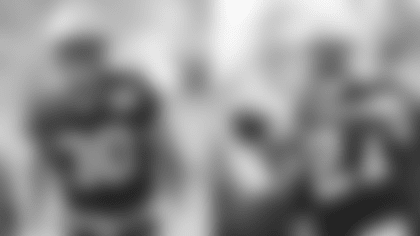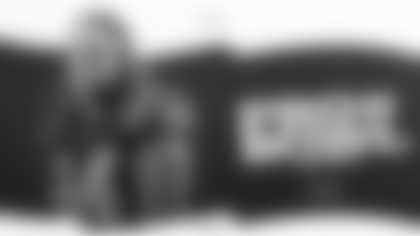[

](http://www.careyindiana.com)
INDIANAPOLIS –Jim Irsay, the Colts' owner and chief executive officer, referred to 1998 as the beginning of his club's "new era."
Irsay's first move for that season was hiring team President Bill Polian. Then Polian brought in Head Coach Jim Mora. And then the franchise started building for the future by drafting quarterback Peyton Manning and handing him the keys to the offense.
How did that "new era" pan out? With Irsay, Polian and Manning leading the way, the Colts were the only NFL team to produce 11 playoff appearances in the 12 years. Twice, Indy played in the Super Bowl, winning it after the 2006 season.
Polian joined the Colts in December 1997 after serving in similar player personnel roles in Buffalo and Carolina and boosting the Bills to three of their Super Bowl appearances and the expansion Panthers to a division title.
"Experience is a valuable teacher, and you take something from your experiences – good, bad or indifferent," Polian said upon his arrival in Indianapolis. "You are what you are. Do we have some talent? Yes. Does it have to play better? You bet. We've got to play better. We've got to play smarter. We've got to play more efficiently. We have to make plays when the chips are down."
Polian hired Mora to help correct those problems. He said Mora would bring three assets to the Colts: passion, direction and discipline. Polian also loved the coach's attitude.
"He's a one-man pep rally," Polian said.
Then the Colts drafted Manning, selecting him ahead of Ryan Leaf. The plan, from the beginning, was to start Manning as a rookie and allow him to gain his NFL credentials not through watching from the sidelines but by experiencing the NFL under the gun. The quarterback embraced the opportunity.
"I think the sooner you take the bumps and bruises, and the more experience you get (early), the better off you'll be in the long run," the rookie from Tennessee said. "I'll have to learn on the job and make some mistakes, but hopefully I won't make a bunch of them. ... You can only be so good on the chalkboard or paper. You have to be good on the field. The only way to do that is to get on the field and play."
And play he did. Manning took every Colts snap in the 1998 regular season. He set an NFL rookie record for consecutive games with a touchdown pass (13) and total touchdown passes (26). He also set NFL rookie marks and Colts club records for single-season completions (326) and yards (3,739). The Colts finished 3-13. It was a record that had a future, however.
"To accomplish what Peyton accomplished this year to me was remarkable," Mora said after the season. "He exceeded my expectations. He is everything and more that I thought he would be when we drafted him. I couldn't be more excited about having him as our quarterback now and for the future.
"It is the biggest thing," Mora added about Manning's presence, "that gives me very, very strong hope for the future of this franchise. I know this: This is a quarterback league, and you can't win big without a special guy at quarterback. I believe we have one."
Manning and the Colts struggled from the gate in 1998, producing just 57 points in the first five games. But team executives were prepared to deal with the growing pains. And their hopes for the future were bolstered immediately as Manning opened the season with a 302-yard passing day in a 24-15 loss to Miami.
A few weeks later, the Colts would fall to 0-4, losing to New Orleans in heartbreaking fashion in overtime as they failed to capitalize on Manning's second 300-yard game.
"It is a matter of the team pulling together," Manning said after the Saints game. "We cannot have any finger-pointing. Our guys on defense played so hard for the whole game. Offensively ... we had a chance to put it away with a field goal, and we got a sack and had to punt.
"If you thought last week was gut-check time, then this week really is. All we can do is pull together and begin to feed off one another."
Mission accomplished. With San Diego in the RCA Dome on October 4, Manning connected with running back Marshall Faulk for an early 19-yard touchdown pass, followed by a two-point conversion run by Ken Dilger from a "swinging gate" formation. Three field goals by Mike Vanderjagt held the Chargers at bay, and Indianapolis captured its first victory by a 17-12 count.
"It's good to get a win and know that we are capable of doing it," Manning said after gaining the victory over his fellow rookie quarterback, Leaf. "Hopefully, there will be a lot more to come."
The 1998 season brought two more victories, including a stirring 24-23 comeback over the visiting New York Jets on November 15. Manning completed eight-of-13 passes on the game-winning drive, which culminated with a 14-yard pass to tight end Marcus Pollard with 24 seconds remaining.
"We knew on the sideline that if we got the ball back, we were going to win the game," Colts receiver Marvin Harrison said afterward. "Marcus showed what the whole team displayed with hard work and determination."
On December 13, Manning threw three scoring passes and Faulk rushed for 115 yards and two touchdowns as the Colts beat the visiting Bengals, 39-26. Faulk's 154 yards from scrimmage increased his seasonal total to 2,090, which passed Eric Dickerson (2,036 in 1988) for the highest seasonal total in club history.
"The defense gave us opportunities," Faulk said. "We were able to put some points on the board to help them out. We were able to get off to a good start. ... As a team, we played start to finish."
The Colts scored 133 points in their final five games, showing signs of the firepower that would soon make them consistent winners.
"I think Jim and his coaching staff got everything there was to get out of this team," Polian said at the club's season-ending news conference. "The proof of that is the fact we were leading at the half in six of the last eight ball games, and leading going in the fourth quarter in five out of those."
For the Colts, the Manning era was underway. What he learned as a rookie under fire couldn't be overvalued. Winning, in a big way, was only a year away.
RECAPPING THE 1998 SEASON
* *
Significant moment: It came on draft day when team President Bill Polian and the Colts, after exhaustive research and investigation, selected Peyton Manning over Ryan Leaf with the number one pick. Said Polian: "For the past four years, (Manning) and probably (women's basketball coach) Pat Summit were the face for athletics at the University of Tennessee. What Peyton was able to accomplish reminded me of what Larry Bird did his senior year at Indiana State. He personally played the role of taking his team where it went. ... We can only hope that Peyton goes on to enjoy the type of successes that Larry Bird had in his chosen professional field. We hope the people in the state of Indiana can witness football accomplishments of that magnitude."
Best seasonal performance, Part I: Marshall Faulk totaled 2,227 yards from scrimmage, the sixth-best output in NFL history. He accounted for 42.6 percent of the team's gross yards, the fifth-best seasonal mark in league history. Said Faulk about his workload: "I don't have a problem with that, and I'm not trying to hand any of it back. As long as my body holds up, I'm up for the challenge. Never do you feel a team is too reliant on you."
*Best seasonal performance, Part II: *Besides all of the aforementioned records set by Manning, the rookie became the first Colts quarterback in history to take every snap (982) during a season. Said Polian about the Colts' decision: "Experience is the best teacher. I first heard this from the late Paul Brown, the modern father of pro football. It applies particularly to Peyton. There is no way he could gain the experience necessary to play against modern blitzing defenses by holding a clipboard on the sidelines and watching."
*Best seasonal performance, Part III: *Marvin Harrison connected with Manning for 59 receptions for 776 yards and seven touchdowns. Said Harrison: "Peyton didn't come in here to try to help the team; he* knew *he was going to help the team. He came in here like, 'I've got to get the job done right away.' That's a person who is taking it as a business." It was just the beginning of great things for the Manning-Harrison duo. They would go on to record 953 completions for 12,766 yards and 112 touchdowns through the 2008 season, the best combo mark in NFL history.
Unsung hero: Overshadowed by the development of the Colts' offense in 1998 was the defensive performance turned in by safety Jason Belser, who totaled 129 tackles, an interception and two forced fumbles. Belser credited his practice competitions against Manning for making him a better defensive back. "He's not afraid to put a ball where other quarterbacks may not even think of putting a ball," Belser said. "There's an air of smartness (about him)."
Turning point: The first NFL game-winning drive engineered by Manning came on November 15 against the Jets. He led the Colts 80 yards in 15 plays, completing a 14-pass touchdown pass to Marcus Pollard for the 24-23 victory. Manning had 45 career fourth-quarter or overtime drives for victories, which is first in Colts history. He led the team to an NFL-record seven comeback wins in 2009.
Memorable moment: Running back Craig Heyward was a veteran of 10 NFL seasons when he signed with the Colts in 1998. In November of that year, Heyward was diagnosed with bone cancer at the base of his skull. After the Colts beat the Jets on November 15, the players wanted to honor Heyward in a memorable fashion. "The reason I have the game ball is that the team has awarded it to Craig Heyward," Coach Jim Mora said at his post-game news conference. "I will be taking it to him at the hospital and will be presenting it to him. Craig is a unique individual personality-wise and he stepped in here and became a team favorite." Surgery and radiation treatments relieved Heyward's condition, but the cancer recurred in 2005. He died on May 27, 2006, at the age of 39.















